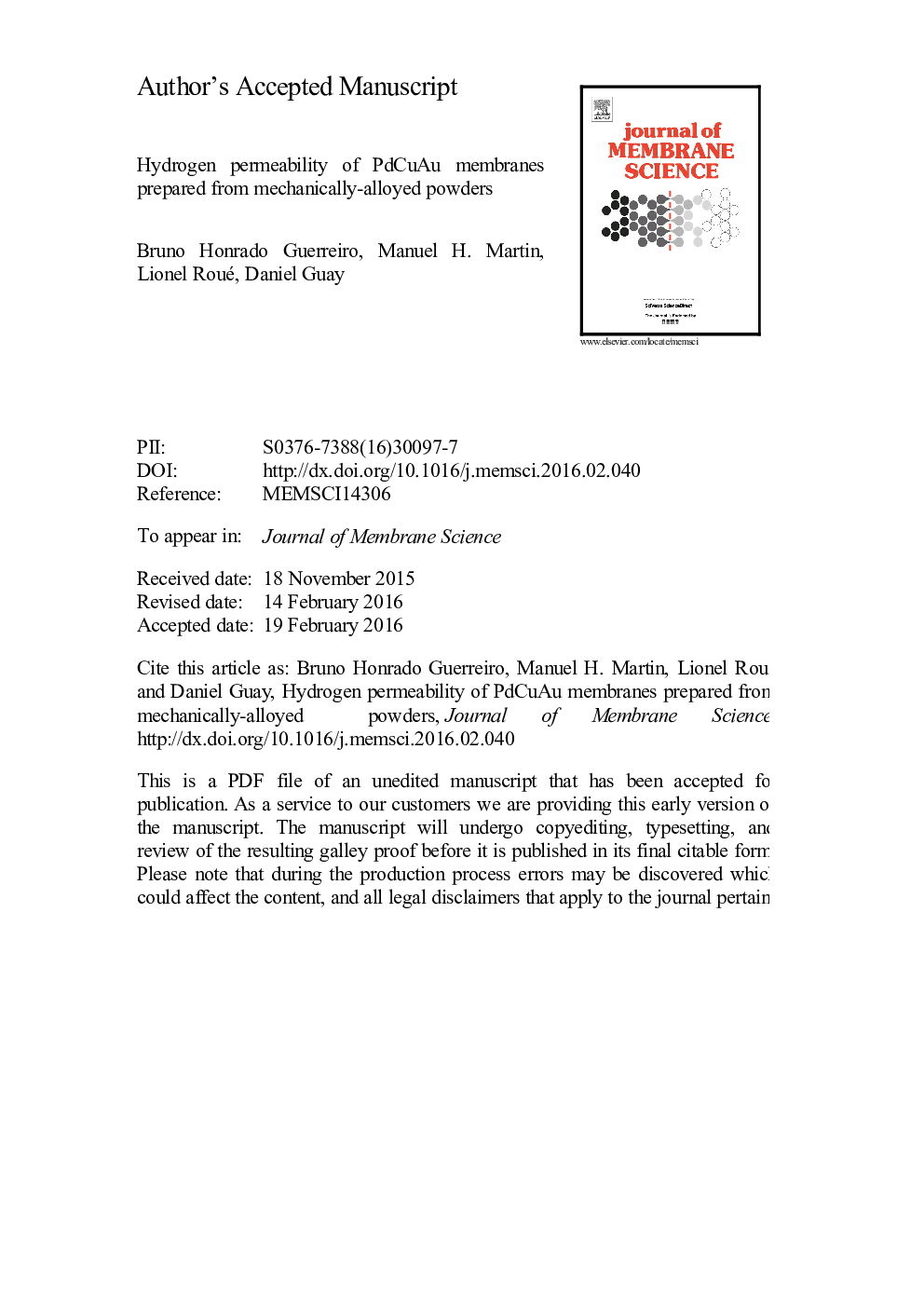| کد مقاله | کد نشریه | سال انتشار | مقاله انگلیسی | نسخه تمام متن |
|---|---|---|---|---|
| 632434 | 1455990 | 2016 | 59 صفحه PDF | دانلود رایگان |
عنوان انگلیسی مقاله ISI
Hydrogen permeability of PdCuAu membranes prepared from mechanically-alloyed powders
دانلود مقاله + سفارش ترجمه
دانلود مقاله ISI انگلیسی
رایگان برای ایرانیان
کلمات کلیدی
موضوعات مرتبط
مهندسی و علوم پایه
مهندسی شیمی
تصفیه و جداسازی
پیش نمایش صفحه اول مقاله

چکیده انگلیسی
Membranes made from body-centered cubic palladium-copper (bcc-PdCu) alloys are a promising technology for the separation of hydrogen gas, with the potential to reduce production costs. However, bcc-PdCu alloys are easily deactivated in the presence of hydrogen sulfide, a common contaminant present in hydrogen, and prepared from methane steam reforming or coal gasification. To overcome H2S poisoning, copper was partially replaced by gold while keeping the bcc structure. In this regard, PdCuAu ternary alloys with composition Pd40Cu60âxAux with x=0, 3, 7 and 11 at% were prepared by ball milling the elemental metal powders with NaCl as the process control agent. As-prepared alloys had face-centered cubic (fcc) phase and transition to the bcc was promoted by heat treatment. The bcc powders were used in the preparation of stand-alone membranes. Among these alloys, permeability was highest when x=7 at% (2.1Ã10â8 mol mâ1 sâ1 Paâ0.5), even higher than Pd (1.2Ã10â8 mol mâ1 sâ1 Paâ0.5) at 464 °C under pure hydrogen gas conditions. Sulfides of copper and sodium formed on the surface when the alloy membrane was in the presence of H2S, which precluded further hydrogen permeation. However, contrary to pure Pd membranes, no significant bulk sulfidation of the ternary alloy was observed, which offers the possibility of restoring membrane permeability.
ناشر
Database: Elsevier - ScienceDirect (ساینس دایرکت)
Journal: Journal of Membrane Science - Volume 509, 1 July 2016, Pages 68-82
Journal: Journal of Membrane Science - Volume 509, 1 July 2016, Pages 68-82
نویسندگان
Bruno Honrado Guerreiro, Manuel H. Martin, Lionel Roué, Daniel Guay,